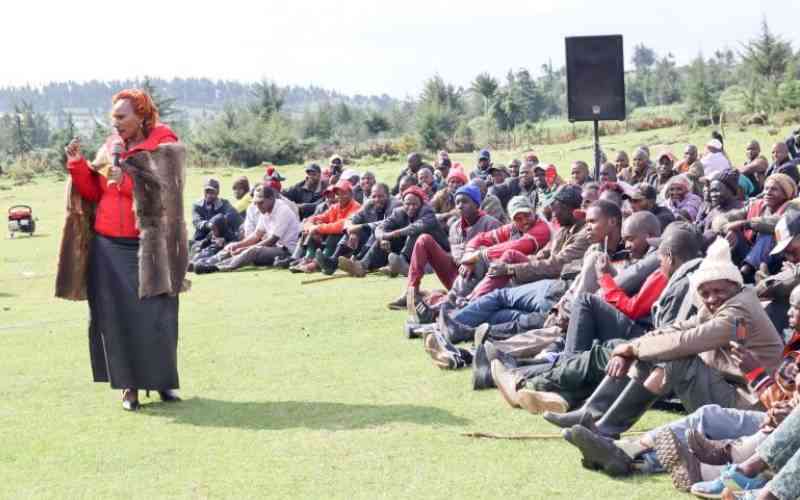×
The Standard e-Paper
Fearless, Trusted News

The multi-sectoral committee implementing the African Court's decision that the Kenyan government grants Ogiek people a collective land title deed to the Mau forest has begun fact-finding activities in the Mau ecosystem.
The team that was joined by the Commission on Administrative Justice (CAJ) chairperson Florence Kajuju, pitched tent in Kiptunga forest at Marioshoni in Nakuru County for three days, as part of a follow-up by the Ombudsman on the implementation of the ruling issued on June 23, last year.